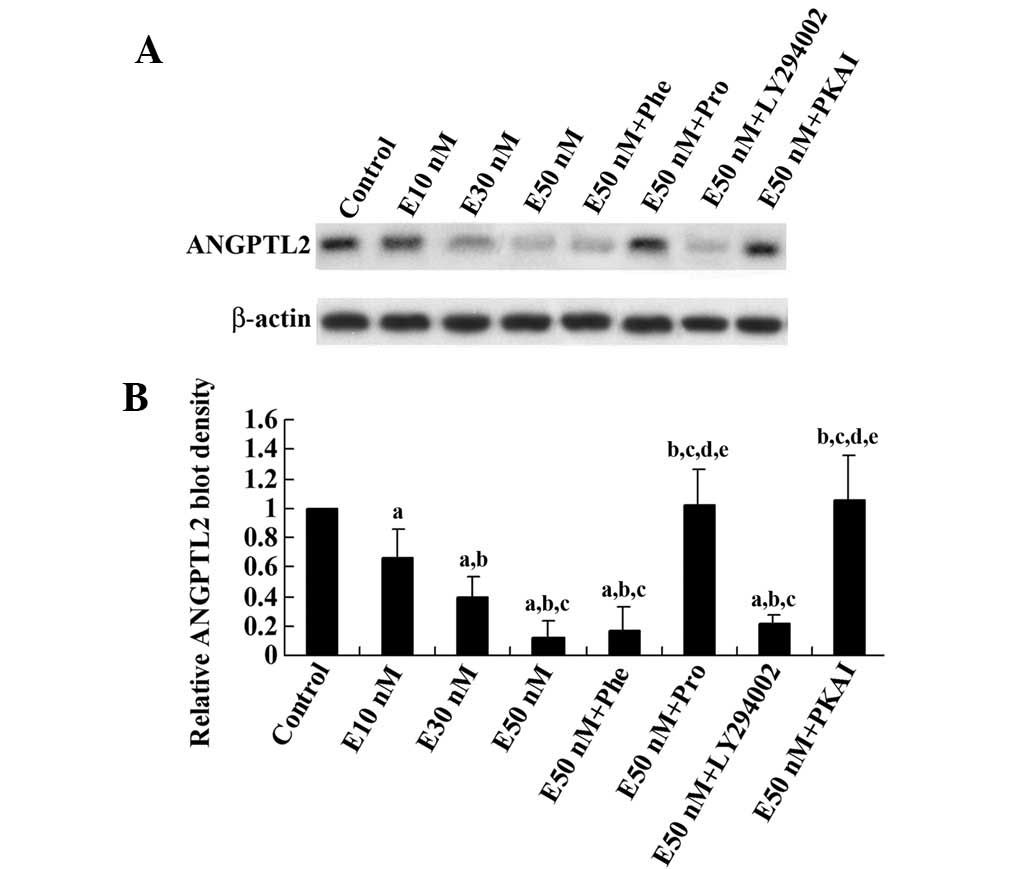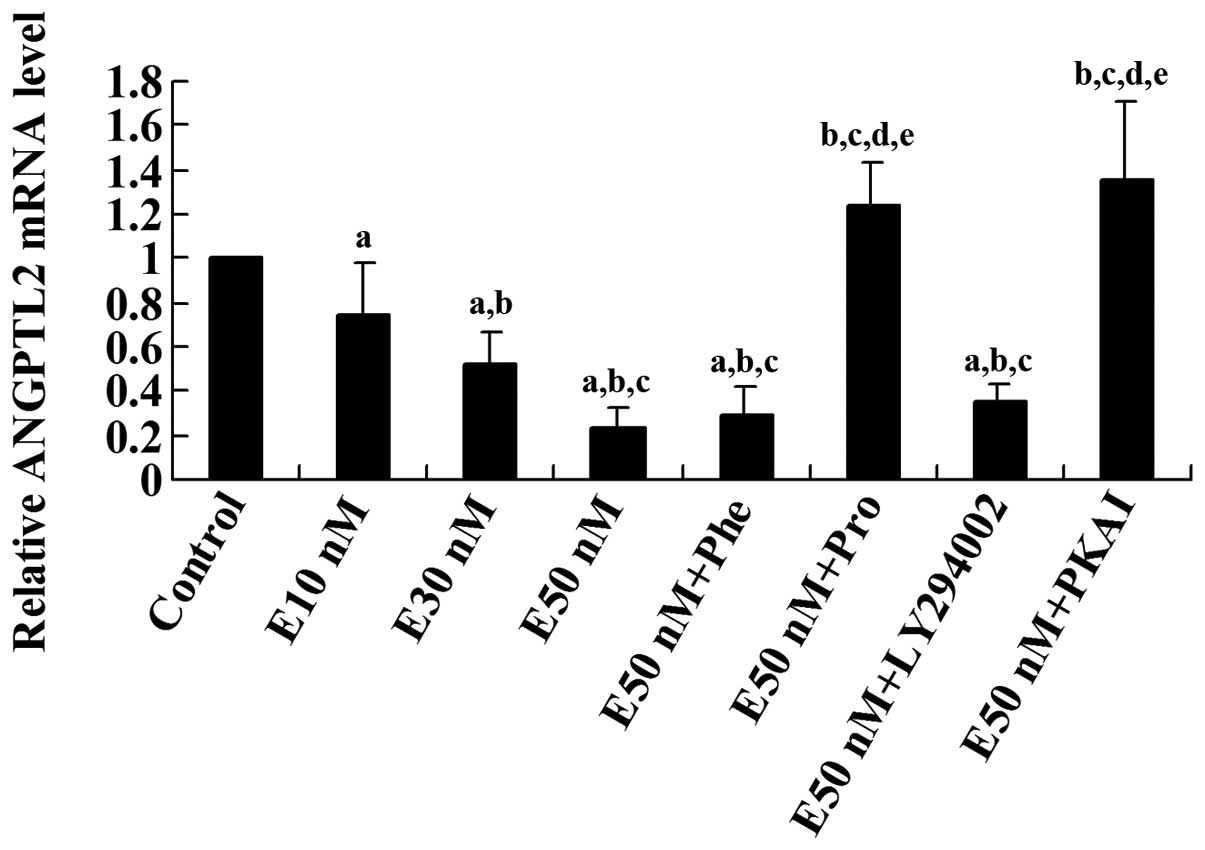|
1.
|
Eckel RH, Grundy SM and Zimmet PZ: The
metabolic syndrome. Lancet. 365:1415–1428. 2005. View Article : Google Scholar : PubMed/NCBI
|
|
2.
|
Mokdad AH, Ford ES, Bowman BA, Dietz WH,
Vinicor F, Bales VS and Marks JS: Prevalence of obesity, diabetes,
and obesity-related health risk factors, 2001. JAMA. 289:76–79.
2003. View Article : Google Scholar : PubMed/NCBI
|
|
3.
|
Ruderman NB, Schneider SH and Berchtold P:
The ‘metabolically-obese,’ normal-weight individual. Am J Clin
Nutr. 34:1617–1621. 1981.
|
|
4.
|
Succurro E, Marini MA, Frontoni S, et al:
Insulin secretion in metabolically obese, but normal weight, and in
metabolically healthy but obese individuals. Obesity (Silver
Spring). 16:1881–1886. 2008. View Article : Google Scholar : PubMed/NCBI
|
|
5.
|
Brochu M, Tchernof A, Dionne IJ, Sites CK,
Eltabbakh GH, Sims EA and Poehlman ET: What are the physical
characteristics associated with a normal metabolic profile despite
a high level of obesity in postmenopausal women? J Clin Endocrinol
Metab. 86:1020–1025. 2001.
|
|
6.
|
Karelis AD, Faraj M, Bastard JP, St-Pierre
DH, Brochu M, Prud’homme D and Rabasa-Lhoret R: The metabolically
healthy but obese individual presents a favorable inflammation
profile. J Clin Endocrinol Metab. 90:4145–4150. 2005. View Article : Google Scholar : PubMed/NCBI
|
|
7.
|
Dai XP, Liu ZQ, Xu LY, Gong ZC, Huang Q,
Dong M and Huang X: Association of plasma epinephrine level with
insulin sensitivity in metabolically healthy but obese individuals.
Auton Neurosci. 167:66–69. 2012. View Article : Google Scholar : PubMed/NCBI
|
|
8.
|
Doi Y, Ninomiya T, Hirakawa Y, et al:
Angiopoietin-like protein 2 and risk of type 2 diabetes in a
general Japanese population: the Hisayama study. Diabetes Care.
36:98–100. 2013. View Article : Google Scholar : PubMed/NCBI
|
|
9.
|
Tabata M, Kadomatsu T, Fukuhara S, et al:
Angiopoietin-like protein 2 promotes chronic adipose tissue
inflammation and obesity-related systemic insulin resistance. Cell
Metab. 10:178–188. 2009. View Article : Google Scholar : PubMed/NCBI
|
|
10.
|
Okada T, Tsukano H, Endo M, et al:
Synoviocyte-derived angiopoietin-like protein 2 contributes to
synovial chronic inflammation in rheumatoid arthritis. Am J Pathol.
176:2309–2319. 2010. View Article : Google Scholar : PubMed/NCBI
|
|
11.
|
Wildman RP, Muntner P, Reynolds K, McGinn
AP, Rajpathak S, Wylie-Rosett J and Sowers MR: The obese without
cardio-metabolic risk factor clustering and the normal weight with
cardiometabolic risk factor clustering: prevalence and correlates
of 2 phenotypes among the US population (NHANES 1999–2004). Arch
Intern Med. 168:1617–1624. 2008.PubMed/NCBI
|
|
12.
|
Romano M, Guagnano MT, Pacini G, et al:
Association of inflammation markers with impaired insulin
sensitivity and coagulative activation in obese healthy women. J
Clin Endocrinol Metab. 88:5321–5326. 2003. View Article : Google Scholar : PubMed/NCBI
|
|
13.
|
Westfall TC and Westfall DP:
Neurotransmission: The autonomic and somatic motor nervous systems.
Goodman and Gilman’s The Pharmacological Basis of Therapeutics.
Brunton LL: 11th edition. McGraw-Hill; London, UK: pp. 137–182.
2006
|
|
14.
|
Ziegler MG, Milic M, Sun P, et al:
Endogenous epinephrine protects against obesity induced insulin
resistance. Auton Neurosci. 162:32–34. 2011. View Article : Google Scholar : PubMed/NCBI
|
|
15.
|
Steinberg GR and Jørgensen SB: The
AMP-activated protein kinase: role in regulation of skeletal muscle
metabolism and insulin sensitivity. Mini Rev Med Chem. 7:519–526.
2007. View Article : Google Scholar : PubMed/NCBI
|
|
16.
|
Sharma AM, Pischon T, Hardt S, Kunz I and
Luft FC: Hypothesis: Beta-adrenergic receptor blockers and weight
gain: A systematic analysis. Hypertension. 37:250–254. 2001.
View Article : Google Scholar : PubMed/NCBI
|
















